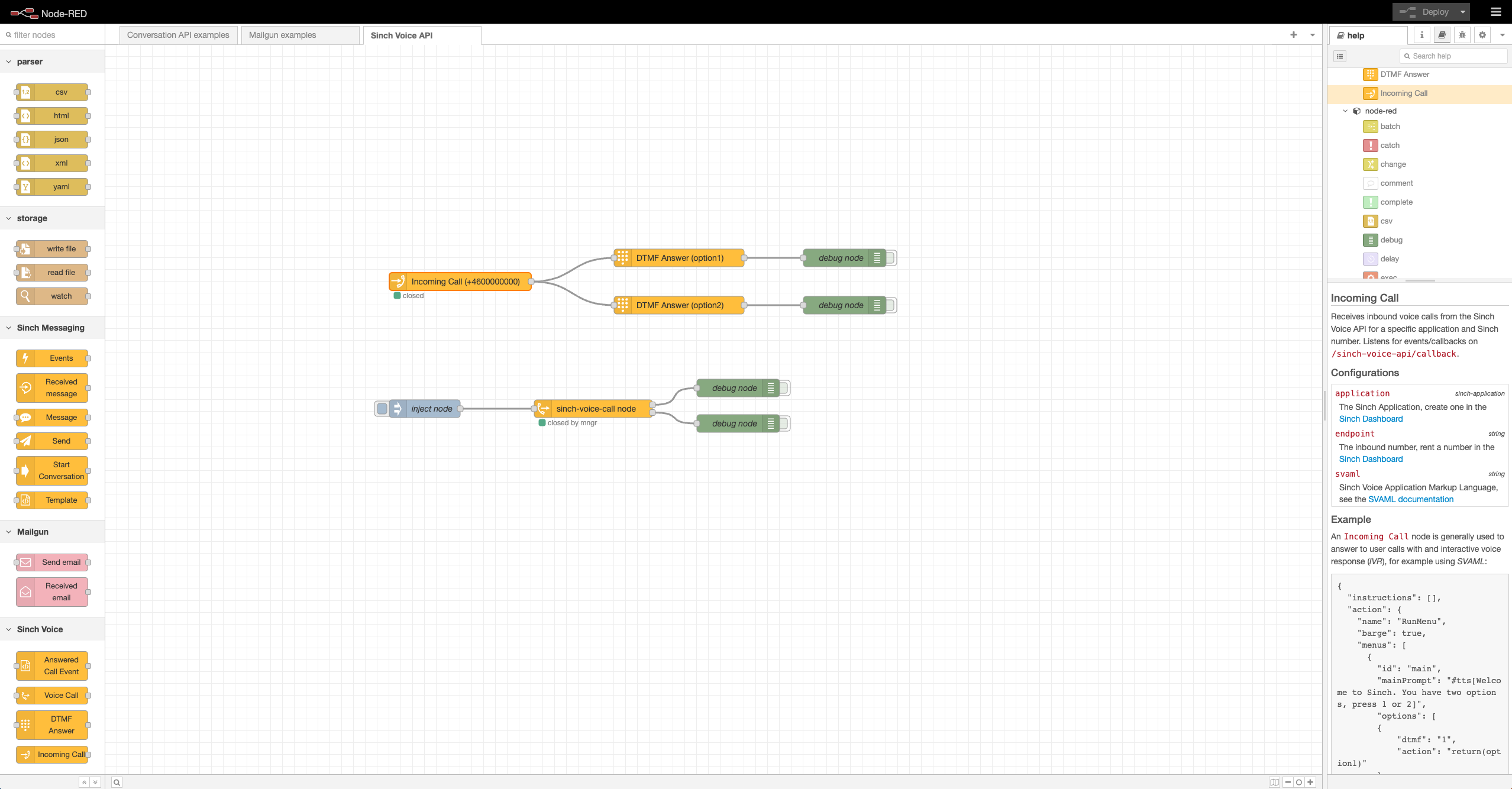A package of nodes for Node-RED which allows you to connect, initiate and receive voice calls through the Sinch Voice API. For more information about the Sinch Voice API and how to get started, see the documentation.
The first step is to install Node-RED.
$ sudo npm install -g node-red
Compatible with Node-Red version 3.x.x and later
The second step is to install the package. You can either install it directly using the Palette Manager. Instructions can be found here: Node-RED.
Or install manually using npm:
Navigate to the Node-RED installation and install the package:
$ cd ~/.node-red
$ npm install @sinch/node-red-voice-api
Run Node-RED locally:
$ node-red
This will start a server for Node-RED on http://127.0.0.1:1880/.
If the installation of the node package was successful, the Sinch Voice API nodes should be available in the node palette to the left, under the category "Sinch Voice".
After you've installed Node-RED and the @sinch/node-red-voice-api package you can start building your flow. To get you started we provide an example flows.json containing the essentials for initiating and receiving voice calls. To import the flows.json file, open Node-RED in the brower and select the hamburger menu in the top right corner. Choose "Import" and press "select a file to import". The flow file will then be imported on a tab called "Example flow".
The flow.json contains two separate flow examples. For each of the flows there exists a comment node containing additional information about the configuration required to test it out.
If you're running Node-RED locally on localhost and want to test receiving voice calls and events, we recommend using a tool like Ngrok. This tool allow you to expose your localhost to the internet and makes it possible to route callback events to Node-RED. This is also a useful for testing the native Http-in node provided by Node-RED.
This package contains the following four nodes:
Handles and routes inbound voice calls from the Sinch Voice API for a specific application and Sinch number.
In order to receive calls from the Sinch Voice APi, you need to configure a Callback URL on the voice application in the Sinch dashboard. The path should be: <node-red-path>/sinch-voice-api/callback.
Initiates an outbound voice call using the Sinch Voice API.
In order to initiate calls from the Sinch Voice APi, you need to configure a Callback URL on the voice application in the Sinch dashboard. The path should be: <node-red-path>/sinch-voice-api/callback.
Captures the DTMF (Dual Tone Multi Frequency) keypad (0-9, * and #) input from the user response.
Stores a SVAML for a call (inbound or outbound) in case of an ACE (Answered Call Event).
See, CONTRIBUTING.md.
Copyright Sinch AB, https://sinch.com under the Apache 2.0 license.
